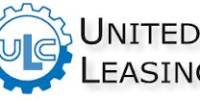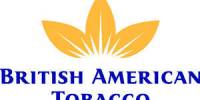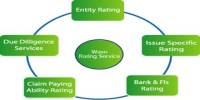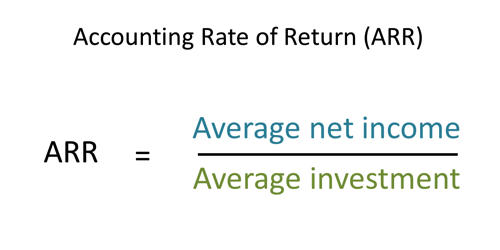Background of the organization:
The Investment Corporation of Bangladesh (ICB) was established on 1st October 1976, under “The Investment Corporation of Bangladesh Ordinance, 1976” (no. XL of 1976). The establishment of ICB was a major step in a series of measures undertaken by the Government to accelerate the peace of industrialization and to develop a well-organized and vibrate Capital Market particularly security market in Bangladesh. ICB caters to the need of institutional support to meet the equity gap of the companies. In view of national policy of accelerating the rate of savings & investment to foster self-reliant economy, ICB assumes an indispensable & pivotal role. Through the enactment of the investment corporation of Bangladesh (Amendment) Act, 2000(no 24 of 2000), reforms in operational strategies & business policy have been implemented by establishing & operating subsidiaries companies under ICB.
Corporate Profile:
Corporation Name: Investment Corporation of Bangladesh (ICB).
Establishment Time: 1st October 1976.
Ordinance Name: ICB is established under “The Investment Corporation of Bangladesh Ordinance, 1976”.
Subsidiary Company: Under the enactment of The Investment Corporation (Amendment) Act, 2000 (no 24 of 2000), reform in operational strategies and business policies have been implemented by establishing and operating subsidiary companies of ICB. Those companies are:
ICB Asset Management Company Ltd.
ICB Capital Management Company Ltd.
ICB Securities Trading Company Ltd.
Objectives:
To encourage and broaden the base of investments.
To develop the capital market.
To mobilize the saving.
To promote and establish subsidiary companies for business expansion.
To provide for ancillary thereto.
Business Policy:
To act on commercial consideration with due regard to the interest of industry, commerce, depositors, investors and to the public in general.
To provide financial assistance to projects subject to their economic and commercial viability.
To arrange equity and loans singly or through consortium of financial institutions including banks.
To develop and encourage entrepreneurs.
To diversify investments.
To inspire small and medium severs for investment in securities.
To create employment opportunities.
To encourage more on investment in Agro-based and Information & Communication (ICT) sectors
Functions:
Direct purchase of shears and debentures including placement and equity participation.
Participating in and financing of joint-venture companies.
Providing lease finance singly and through syndication.
Managing existing investment accounts.
Managing existing mutual fund and unit fund.
Managing portfolio of existing businesses.
Conducting computer-training programs.
Providing advance against ICB unit and mutual fund certificates.
To act as trustee and custodian.
Providing bank guarantee.
Providing consumer credit.
Providing investment counseling to investors.
Participating in government divestment program.
Introducing new business products suiting market demand.
Dealing with other matters related to capital market.
To supervise and control the activities of the subsidiary companies
Capital Structure of ICB:
Particulars As on 30 June (Tk. In crore) Increase / Decrease( Percentage) 2005 2004
Authorized Capital 100.00 100.00
Paid up Capital 50.00 50.00 –
Reserves 84.11 69.11 21.70
Retained Profits 5.36 3.24 65.43
Long term Govt. Loan 5.25 5.25 –
Debentures 61.80 76.03 -18.72
Others 24.89 27.40 -9.16
Total 231.41 231.03 0.16
Share Price of ICB:
Share price of ICB varied from lowest Tk. 122.0 to highest Tk. 219.5 in the stock exchanges during the year. As on 30 June 2005, the market price of share was Tk. 200.00 and Tk. 201.25 in the DSE and CSE respectively.
Products of ICB:
Private Placements: ICB is authorized to act as an agent of the issuers and investors for private placements of securities. Under this arrangement, ICB places securities to individuals/ institutions on behalf of the issuer for which it charges fees. ICB also acquires shares/ securities for its own portfolios.
Custodian and Banker to the issues: To as the custodian to the public issue of open-end and close-end mutual funds, ICB provides professional services. It also acts as the banker to the issues and provides similar services through the network of its branches. Fees in this regard are negotiable.
Mergers and Acquisitions: Companies willing to expand their business through managers or acquisitions or to divest projects that no longer fit into present scale of operations contract the operation. ICB provides professional services and advised in respect of shaping up the cost and financial structures to ensure best possible operational results. Besides, in case of divestment, the corporation, through network and established business relationship, bring buyers and sellers together, help them negotiate final agreement and advise no the emerging cooperate structure.
Corporate Financial Advice: Companies and govt. enterprises intending to go public often seek professional and financial advice no corporate restructuring and reengineering. ICB through its expertise provide such services.
Bank Guarantee Scheme: ICB introduced bank guarantee scheme in 2002-03. ICB provides:
i. Bid bond for enabling the business people to participate in any tender or bidding.
ii. Performance bond for helping the business community to continue their business smoothly by fool filling their obligations promised by them to their clients.
iii. Customs guarantee for solving different disagreements between the customs authority and the business classes at the initial stage.
The maximum limit of guarantee is Tk. 2.0 crore and would be issued against at least 20% cash and 80% easily and en-cashable securities or against 100% cash margin. Re- guarantee from other financial institution is required for guarantee against the amount exceeding Tk. 2.0 crore.
Consumer Credit Scheme: As part of business diversification program ICB has introduced “ Consumer Credit Scheme “ in 2003-04 looking at the need of various household commodities of different professionals of govt., semi govt., autonomous bodies and some established private sector organizations. Under this scheme one can enjoy minimum of Tk. 1.0 lac but maximum of Tk. 5.0 lac credit facilities. The rate of interest on the loan is reasonable and competitive.
Lease Financing: ICB provides lease finance mainly for machinery, equipment and transport. ICB is in a position to provide professional advice and financial assistance to the intending clients. The provide of lease, rental, charges and others terms and conditions are determine on the basis of type of assets and the extent of assistance required by the applicants. Since introduction of this scheme, in 1999 good responses have been received from the intending lessees.
ICB Unit Fund: It is a open-end mutual fund scheme launched in April 1981, through which small and medium saver get opportunity to invest their savings in a balanced and relatively law risk portfolio. ICB has so far declared attractive dividends on units every year ranging from Tk.11.5 to Tk. 25.0 per unit. Investment in units enjoys tax benefits, amount applicable as per law. However, under the ICB’s restructuring programs new unit certificates are being sold by ICB’s subsidiary company, the ICB Asset Management Company Ltd.
Investors’ Scheme: The investors’ scheme was introduced in June 1997. Over the years, this scheme has grown tremendously. ICB, at its discretion, may grant up to two times loan against the assets of an account subject to a maximum limit of Tk. 3.0 lac. An account holder may use the combined balance of his/ her equities and loan to buy shares/ securities. To help the investors’ to develop diversified and balanced portfolio to minimize risk and around a reasonable return, ICB provides professional advice and other support services. Under the restructuring program, ICB operates and manages only the old accounts and new accounts are being opened and managed by the ICB capital management ltd. – a subsidiary of ICB.
Advance against ICB Units Certificates Scheme: Advance against ICB unit certificates scheme was introduced in 1998, especially designed for the ICB unit holders to meet their emergency fund requirements. One can borrow maximum of Tk. 85 per unit by depositing his/ her unit certificates underline arrangement from any of the ICB office where from such unit certificates were purchased. The rate of interest on the loan is reasonable and competitive.
Advance against ICB Mutual Fund Certificates Scheme: Advance against ICB mutual fund certificates scheme was introduced in 2003, designed for the ICB mutual fund certificate holders to meet their emergency fund requirement. One can borrow maximum of 50% value of last one year’s weighted average market price of certificates at time of borrowing by depositing his/ her certificates underline arrangement from any of the ICB office. The rate of interest on the loan is reasonable and also competitive.
ICB Mutual Fund: ICB has so far floated eight closed-end mutual funds. The first ICB mutual fund was floated on 25 April 1980, while the eighth ICB mutual fund was floated on 23 July 1996. The aggregate size of these funds is Tk. 17.5 crore. As on 30 June 2004, 33646 certificate holders on these funds. Dividends declared on the funds were very attractive ranging from 14.0 to 200.0 per certificates for 2003-04. Investors show overwhelming interest in all the ICB mutual funds. One can invest in search funds through the stock exchange with which these funds are listed. Through cooperate restructuring new mutual funds are being floated through “ICB Asset Management Company Ltd.”- a subsidiary of ICB.
Human Resource:
Manpower:
The Corporation’s manpower strength enhanced by 35 persons through recruitment of 14 officers and 21 employees at different levels during 2004-05. This appointment was made mainly to add dynamism and efficiency in overall activities of ICB through the uses of computer technology. On the other hand, two officers resigned and one officer retired from the service of ICB. One officer got promotion as General Manager and joined in another Bank. The total manpower as on 30 June 2005 stood at 396, which was 365 on the same date of last year. Out of 396 persons, 254 were officers and 142 non-officer employees. The total number of female employees was 59, including 44 officers representing 14.9 per cent of the total manpower.
Local Training:
During 2004-05, as part of human resource development program, ICB took steps to develop skill, knowledge and professional competence of its manpower by arranging various in-house and local training courses. During the year, 24 officers and 24 employees of ICB received local training on different subjects including Grassroots Training Course. Financial Institute Development Project (FIDP), IDA Credit no. 3258 BD: Securitisation Workshop, Financing Homeownership Experience with Public-Private Partnership, Leadership Training Course for Women, International workshop on the Development of Bond Market in Bangladesh, Joint Leadership Training Course for Finance Sector, Trade Union Course for Youth Member, National Training Course on Public Procurement Management, Marketing of Bank Products, Corporate Governance, Departmental Inquiry, Asset Securitisation Role of Trustee, Database Administration with SQL Server-2000, Securitisation, Bond Market and Commercial Papers: Primary and Secondary Market Development, Factoring for SME Financing. The Stock Market in Bangladesh with Particular Reference to the operation of the Exchange and Regulatory Issue Related to Market Safety, etc.
Foreign Training:
During 2004-05, 3 officers participating in a training course held in India on Identification and Rehabilitation of Sick Project.
Participation in International Fund Activities:
ICB’s involvement with South Asian Development Fund (SADF):
SAARC Fund for Regional Project (SFRP) and SAARC Regional Fund (SRF) were established in1991 with the collaboration of member countries of SAARC. The establishment of SADF was officially declared by dissolving SFRF and SAF in a meeting of the member countries held in Dhaka in June 1996. SADF is an Umbrella Fund comprising three windows: Window-I for Identification and Development of Project; Window-II for Institutional and Human Resource Development; and Window-III for Social and Infrastructural Development. ICB being the nodal DFI has been representing Bangladesh in the governing board of SADF. Up to 30 June 2005, eight meeting of the governing board were held. The Managing Director of ICB performed the responsibilities of the first Chairman of the governing board of SADF and by rotation; the Chief Executive Officer of National Bank of Pakistan is the current Chairman of the governing board of SADF. Under Window-I of SADF Identification and feasibility studies of 16 projects have been completed of which 9 projects are in Bangladesh and Under Window-II two training program on “Executive Development Program” and “Identification and Rehabilitation of Sick Projects” were arranged in India.
Investment in South Asian Regional Fund (SARF):
To facilitate investment in SAARC member countries, a development fund of US$ 200.0 million, namely, the South Asian Regional Fund (SARF) was lunched in the Commonwealth Summit held in 1997. The fund is managed by a wholly owned subsidiary of Commonwealth Development Corporation (CDC) incorporated in Mauritius. In addition, CDC has made equity investment to the tune of US$ 50.0 million in this fund. The objective of this fund is to achieve long-term benefits through direct equity and equity related investments in private sector companies of SAARC countries.
ICB investment of US$ 1.0 million equivalent to BTD 5.33 crore in SARF from ICB Unit Fund, and in exchange, the SARF issued 1000 Ordinary ‘A’ shears and 1000 “8% preference shares” in favour of ICB Unit Fund. Up to 30 June 2005.
Functions of Administration Division:
This division consists of two departments. Those are:
A) Personal Department
B) Establishment Department
A) Personal Department:
This department deals with the Human Resource of the organization. The main function of the department can be described as follows:
Recruitment: This department makes the arrangement to recruit the right person to the right place. Two may hold the process ways one is Direct recruitment & another is Promotion. Now-a-days, Direct recruitment is done by the Bank Recruitment Committee.
Training: Arrangement of different training program for the employees to raise their job skill and personal competence.
Disciplinary Action: This action is taken gradually those employees who aviolate rules and regulations of the organization.
Job Rotation: This department rotates the employees through its different department in the organization according to their skill.
Salary: This department fixed the salary scale, bonus, and incentive etc. As per government rules and regulation.
B) Establishment Department:
This department deals with purchases of office supplies, office equipment etc. also maintain the utility services like telephone bill electricity bill etc. The cost of this department is divided into two categories: i.e. revenue cost and fixed cost. For fixed cost, depreciation is charged at straight-line basis.
There are two purchase committees to accomplish the purchase. There remains a quality control committee to examine the quality of the product purchased. For the purchase of the product, this department gives tender notice to the listed supplies. Quality control committee is formed with two Deputy General Manager (DGM), one Assistant General Manager (AGM) and members from the Establishment Department. In case of selling of scraps and wastage the tender offer in same way.
Function of Legal Affairs Division:
This division mainly deals with the legal problem and public prosecution of the organization. Legal affairs have also two departments. Those are:
A) Public Issue Department.
B) Law Department.
A)Public Issue Department:
Recently ICB has adopted certain strategic changes in section bridge loan to unsatisfactory recovery of loans sanctioned earlier by corporation. Bridge loan would only be considered for very selective sectors. Priority has given to direct underwriting, direct investment in debenture and equity participation through placement of share. The ultimate objective of provide direct underwriting and placement of share is to help the projects to go public issue. This department is related to the following task:
Analyze the financial statement of on going projects.
Visit and collected audited financial statement from the sponsors.
Advice pressure sponsors for going to public issue.
Assist sponsor to prepare prospectus for issuing shares and debentures.
Examine the prospectus submitted by the sponsors and make arrangement for its approval.
Advice companies in issuing allotment letters and refund warrants.
Make necessary adjustment of bridging loan of concerned company.
Make necessary adjustment of placement of share at the time of public issue.
Make decision to become Manager to the Issue.
Make liaison with the recovery and follow-up Department regarding realization of dues or over dues.
B) Law Department:
Law department handles any kind affairs of ICB. The functions of this department are as follows:
Prepare legal document, advance agreements, share agreements, demand promissory notes, memorandum and deposit of little deed etc.
Arrange exception of underwriting-cum-advance agreement, underwriting agreement supplementary documents etc.
Process litigation cases, prepare legal notice and refer cases to legal advice and co-ordinate with legal advisor in the court.
Prepare necessary memos for placement in the board meeting relating litigation and legal affairs.
Handle the legal issue related to employee’s loan facilities and other issues related to law.
Functions of Accounts and Finance Division:
The Accounts and Finance Division play an operational aspect, which is vital for ICB. This division consists of two departments. Those are:
A) Central Accounts Department.
B) Project Loan Account Department.
A)Central Accounts Department:
All kind of receipts and payment of ICB are done by the central accounts department. This department is entrusted with the opening and management of bank accounts. Makes accounting payments to the desire of the other departments as per the approval of the competent authority. Another important function of this department is to prepare Annual Accounts and make arrangement for audited the same. Important function of this department is embodied as follows:
Prepare income tax return and matters relating to accounts.
Prepare bill including Project Accounts and maintenance of Project Accounts.
Prepare salary statements, overtime interments etc.
Make payment of all bills and invoices.
Prepare Final Accounts.
Keep Accounts of Government loan and debentures.
Keep Accounts of Unit and Mutual Funds.
Make correspondence with the government, financial institutions, branches etc.
Maintain liaison with external audit and commercial audit.
Maintenance of investors Accounts & Portfolio ledgers.
Calculation of quarterly interest.
Posting and balancing of ledgers.
Preparation of Statement of Accounts for investors.
Furnishing of information to other departments scheme.
Manage overall fund of the corporation.
Revise the budget as and when required.
Prepared fund flow statement of the corporation.
Ensure proper budgetary and cost control.
Take measure for control of expenditure.
C) Project Loan Account Department:
This department presents up to date information about the project of the given loan from the organization. The functions of this department are:
Issue check to the projects after getting disbursement order from the Project Finance Committee.
Maintenance of registers for interest penal interest due and over dues.
Calculation of interest and preparation of periodical bills.
Preparation and dispatch of statement of accounts.
Furnishing of various information regarding disbursements, dues over-dues etc. relating to project loan
Any other assignment given by the management
Branch & Subsidiary Control Division:
This division controls mainly the management and expenditure of the branches as well as subsidiary company. The function of this division is operated by the Branch Control Department.
Branch Control Department:
The functions of this department are:
Maintain up to date information of the branches.
Unannounced investigation to the branches.
Control to the expenditure of the branches.
Work on behalf of branches to the management.
Functions of Loan Appraisal Division:
The Loan Appraisal divisions have four wings, namely Loan Appraisal Department (LAD), Research and Business Development Department (RBDD), Management Information System Department (MISD), Securities Analysis Department (SAD).
Loan Appraisal Department (LAD):
ICB provides financial support to the public limited companies by direct underwriting and through bridge loan. Bridge loans are now very selective and priority has given to the direct underwriting, direct investment in debenture and equity participation through private placement the project. Before financing the in a project this department has to examine the viability of the project. The main tasks of this department in this regard are:
Receive investment proposal form sponsors.
Prepare appraisal reports on project with the help of the project appraisal committee (PAC).
Place appraisal report to the board.
Appraisal management on technical aspect of the project.
Issue section letter to the project.
Research and Business Development Department (RBDD):
This department has a basic decision making function for the organization. The major functions of this department are:
To make the portfolio management decision in favor of the organization as well as small investors.
Conduct meeting of the securities purchase and sales committee.
Convey securities sales or purchase decision to the merchandising division.
Perform all activities related to South Asian Development Fund (SADF)
Management Information System Department (MISD):
This department basically helps the organization in decision making by providing information. The main works of this department are:
Prepare and distribute Annual Report of ICB, Mutual Funds and Unit Funds.
Make arrangement for off loading of government portion of shares in different companies and state owned institutions.
Manage the business development cell, which is established to explore the possibility of business diversification.
Maintain liaison with ministry of finance, Bangladesh Bank and provide ICB related information to interested parties.
Securities Analysis Department (SAD):
This department basically analysis the securities in the market and up coming securities into the market. The basic task of this department is as follows:
Collect information about DSE, CSE, Public issue and half yearly accounts of the listed company.
Prepare 5 years performance appraisal reports of the listed companies.
Prepare board memo regarding declaration of divisions on ICB’s own portfolio, Unit and Mutual funds.
Function of Fund Division:
The Investment Corporation of Bangladesh manages mutual fund both closed and open which presents ideal diversified investment vehicles to small and medium savers who are unable to invest in a basket (portfolio) of a securities either due to lack of knowledge, of time and due to lack of access to information. Mutual funds invest in a wide variety of securities. Investment in Mutual fund implies buying a set of different types of securities.
The fund division engages in the management of mutual funds and consists of three departments, namely:
A) Unit Sales Department.
B) Unit Registration & Procurement Department.
C) Mutual funds Department.
A)Unit Sales Department:
ICB unit is an open-end mutual fund. The responsibility undertaken for managing the fund, management fee charge @ TK. 1 per unit sold. Units are sold through ICB office and other authorized Bank branches. Units are issued as registered certificate. The functions of this department are:
Sale of Unit certificate to the investors.
Reconciliation the amount received and send unit certificate to the agent.
Enacted the units by way of surrendering the certificate along with the prescribed surrendering forms duly filled in and assigned by the registered holders and no prior notice is required.
Transfer the units, if applied for in a prescribed form.
Transmission of units in case of death of the unite-holder.
Splits the units in case of death of the unit-holder.
Splits the unit, if applied for.
Issue the debenture of CIP Certificates.
Making of lien unit, if necessary.
B)Functions of Unit registration & Procurement Department:
As for work efficiently and provide maximum service to the unit certificate holders, this Department performs following jobs:
Registrar end transfer Unit Certificates.
Maintain a separate register for Unit holder CIP.
Verify signature of transfer deed.
Preparation of dividend list from the ledger posting and CIP marking/ cancellation.
Posting all the information related to sale transfers and repurchase from the statements after receiving from Unit sales Department of the ICB Head office and the other issuing officers into the ledger registration wise.
Issue Division warrants and CIP certificated to the holders.
Obtain approval from the management with regard to selection of bank and opening of STD account for payment of dividend to the unit holders as well as list of signatories authorized to sign the dividend warrants on yearly basis.
Sending the dividend list and the traditional dividend list to the dividend-paying bank.
In case of undelivered/ lost mutilated dividend warrants arrangements for issue/ re-issue of duplication issue of dividend warrants after completing necessary formalities.
Delivering the certificates, from brochures, Annual report etc. to all issuing offices as per their requisition.
Coordinating all activities relating to procurement and issue of Unit Certificates.
C) Mutual Funds Department:
Investment Corporation of Bangladesh (ICB) has so far floated eight close and Mutual funds. The first ICB Mutual Fund was floated on 25th April 1980 while the eight ICB Mutual Fund was floated in 10th August 1996. The funds managed by the corporation are good source of regular income for the certificate holders. These funds are popular with the small and medium investors because of consistency in the rate of dividend declared and scope for capital gains. Broadly the functions of mutual fund department consist of:
Act as manager of all Mutual Funds.
Prepare prospectus in connection with the flotation of mutual funds.
Receive applications from the general public in respect of new issues of Mutual Fund.
Scrutinize the application for allotment of shares against application made.
Arrangement of lottery, if necessary, for allotment.
Prepare register of allotment.
Issue allotment letters/ shares certificates.
Arrange refund of excess application money.
Effect transfers and warrants to the holders of the certificated.
Make correspondence with the branches of the corporation, Bank and certificate holders.
Arrange for splitting the share as and when necessary in accordance with the stock exchange rules.
Arrange for payment of brokerage and commission to the stock exchange members for successful sales and bankers to the issues respectively.
Issue duplicate allotment the date of payment of dividend warrants.
Secretary’s Division:
Secretary‘s Division consists of two different departments. They are as follows:
A) Secretary’s Department.
B) Public Relation Department.
A) Secretary’s Department:
This department is not related to the main activities i.e. operational activities of ICB e.g. investment and development financing rather they are engage in following task:
Communicate with the Directors of the Corporation.
Call on meeting of the Board of Director’s.
Agenda and memo about the meeting presents to the Directors in time.
Photocopy the proceedings of meeting and sends to the ministry.
Store the registrar of shareholders.
Call General Meeting and Annual General Meeting (AGM) and perform task about that.
Selection of directors.
B)Public Relation Department:
The main functions of this department are as follows:
Communicate with shareholders.
Take the financial data from the public newspaper and present to the MD .
Make advertisement on behalf of ICB.
Arrange the presentation of different information towards General Public.
Function of Audit and Method Division:
Audit and Method division work as Audit and Method Department. This department’s main work is to examine the financial records and transactions. There are three types of audit conduct in ICB. Those are:
A) Internal Audit: Internal audit is conducted by ICB.
B) External Audit: External audit is conducted by CA firm.
C) Commercial Audit: Government conducts commercial audit.
ICB Subsidiary Company:
As a component of the restructuring program of ICB under Capital Market Development Program (CMDP) initiated by the Govt. of Bangladesh (GOB) and the Asian Development Bank (ADB) and in term of power conferred in the ICB Ordinance three subsidiary companies namely:
A) ICB Capital Management Company Ltd. (ICMCL)
B) ICB Asset Management Company Ltd. (IAMCL)
C) ICB Securities Trading Company Ltd. (ISTCL)
Have been created and made operational to carry out merchant banking, mutual fund operations and stock brokerage functions respectively. After the issuance of Govt. gazette notifications, ICB Capital Management and ICB Asset Management Company Ltd. started their functions from 1st July 2002 and ICB Securities Trading Company Ltd. started from 13th August 2002. Three Subsidiary companies are being operated pursuant their own Memorandum and Articles of Associations, Company Act, 1994, SEC’s Rules and Regulations and other applicable laws. The companies have independent Board of Directors and separate management.
Capital Market in Bangladesh
The capital market in Bangladesh is growing at a slow pace. In last few years, especially after inception of SEC in 1993 and given the experience of share market bubble in 1996, there has been enormous changes in rules and regulations regarding public issues, right issues, acquisition, mergers and so on in order to accelerate market activities. Market surveillance and awareness have also been improved after 1996. However, the capital market in Bangladesh is still at a nascent stage and challenges remained towards gaining the investor’s confidence. Historically, as a consequence of the liberation war in 1971, the existing capital market activities came to a halt because majority of the members stock exchange were domiciled in Pakistan who left the country. In fact, there were no longer any companies listed at the DSE, which was inherited from the East Pakistan Stock Exchange Association (established on April 28, 1954). The government then took the nationalization measures that continued until 1975 that totally disrupted the capital market activities. As a result, capital market activities actually suspended during the period. Eventually, as privatization began in the mid-seventies DSE started trading activities in 1976 with only 9 companies, mostly multinational. In 1977, The ICB was established in order to give institutional support to the stock exchange. In 1979, the first ICB Unit Fund came to the market. From early eighties, some banks including the AB Bank Bangladesh Ltd were listed and started trading at the exchange. During the period of 1979-85, trading at DSE, however, remained negligible. Continuous attempts were made by the Government to improve the trading activities for the next few years. Listing of the exchange crossed 100 in 1988 along with an increase in trading. In early 1990s, Foreign Exchange Regulations were revised and certain control regarding the transfer of shares and flow of foreign exchange were relaxed and the first international investor came to the market in 1993. The Chittagong Stock Exchange on the other hand was established in 1995 with 129 listed companies, From October 1993, trading at DSE started to rise at a relatively high rate. The DSE general index, which was introduced in September 1986, increased to 560.21 in January 1994 from 391.77 in December 1993. Market started to show a bullish trend and general index reached to 1156.18 in July 1996 and as high as 2300 in December 1996 before plummeting to 957.48 in April 1997. The stock market bubble and its demise of 1996 happened at the cost of thousands of individuals and households who came to participate in the market for the first time having little or no knowledge about the market fundamentals and who were mostly misled by the advices given by their brokers, and rumors.
For the next seven years the bear continued; the December 1998 index was 540.22 in comparison to 487.77 in December 1999, 642.68 in December 2000, 829.61 in December 2001, 848.41 in December 2002 and 967.88 in December 2003. Figure 1 shows the evolution of monthly DSE General Share Price Index and turnover from January 89 to December 05 in terms of taka. The index reached a peak of 3064.99 in November’ 96 from a level of 555.24 in January 89 then moved down to 484.44 in January 2000. After the 1996 crisis, the market index at DSE, in fact, started to revive from the first quarter of 2004. The monthly turnover, however, showed its volatility and reached a peak of Taka 11,168.83 million in March 2005.
Securities and Exchange Commission, DSE and CSE:
Over the last few years, especially after the bubble in 1996, equity market in Bangladesh has undergone several structural changes in order to bring efficiency into the market. The SEC came into existence as capital market regulator as on 8th June 1993 through promulgation of the Securities and Exchange Commission Act, 1993 in order to ensure proper issuance of securities, to protect interest of the investors in securities, to develop and regulate the capital and securities market. CDBL was incorporated as a public limited company on 20th August 2000 to operate and maintain the Central Depository System (CDS) in order to provide efficient delivery, settlement and transfer of securities through a computerized book entry system. As of June 2005, 61 companies having 72.84 percent of the total market share in the Dhaka Stock Exchange have been brought under the depository system. Recent development regarding prudential regulations include, among other, amendment of the Rights Issue Rules (1998) and BB’s instruction to the banks for sanctioning loan against dematerialized (demat) shares instead of paper scrip of the listed companies to avoid financial risk. SEC has also made it mandatory to open beneficiary owners’ (BO) account for application of shares through public offering.
Recent Movement of Earnings and Profitability at DSE:
From Figure 1 we can also see the recent movement of DSE general index and turnover. The month closing DSE General Index stood at 1843.95 in January 2005, which went down to 1510.11 in July 05 before rising to 1677.35 in December 2005. Table 3 shows the comparative position of various DSE indicators from 2004 to 2005. It shows that the DSE General Index registered a 14.91 percent decline from end-December 2004 to end-December 2005. The DSE 20 index, which comprises the blue chips shares, also went down by 25.48 percent in 2005. Investors, however, continued to show their confidence as evidenced from the 26.64 percent increase in the value of daily average transaction. The market capitalization increased to BDT 233.08 billion (roughly 5 percent of GDP) from BDT 224.92 billion in 2004 i.e., 3.62 percent increase from the previous year. The price-earnings ratio and the dividend yield ratios indicated better performance at end-December 2005 than that in 2004.
Investment Corporation of Bangladesh (ICB)
The ICB was established on October 1, 1976 under the Investment Corporation of Bangladesh Ordinance, 1976. The major objectives of ICB are to encourage and broaden the base of investment, to develop the capital market, to mobilize savings, to form and develop subsidiaries to spread out the business and to provide for matters ancillary thereto. ICB performs the traditional functions of a merchant bank including underwriting, issue management, portfolio management, trading in stock exchanges, private placement and equity participation, fund management (both closed and open-end mutual funds), opening and maintaining investors’ accounts, providing advisory services to the investors, lease financing, project financing, providing consumer credit, providing bank guarantees, acting as a trustee etc. ICB’s authorized and paid up capital are 1 (one) billion and 500 (five hundred) million taka respectively.
The latter is divided into 4660418 general shares each having a value of 100 (one hundred) taka, of which government of Bangladesh owns 29 percent, Bangladesh Bank 13 percent, Nationalized Commercial Banks 21 percent, Development Financial Institutions 15 percent and Insurance Companies 13 percent. The rest is owned by different Private Commercial Banks and general public. Major indicators of ICB operations are summarized in Table 4. In FY05, ICB’s total income and expenditure are estimated to be BDT1713 and BDT1516 million respectively leaving a profit of BDT197 million. Total income, expenditure and profit are expected to have grown at the rate of 24.5 percent, 25.3 percent and 18 percent respectively in FY05. ICB has recently formed three subsidiaries namely the ICB Capital Management Company Ltd (ICML), the ICB Asset Management Company Ltd (IAMCL) and the ICB Securities Trading Company Ltd (ISTCL). ICML performs the roles of underwriter, Issue manager and placement service provider. The net investment of ICML in FY05 was 0.09 billion taka. IAMCL made a net investment of 0.4 billion taka in 2 close ended and 2 open ended mutual funds and the market price of this investment was 0.5 billion taka in FY05. IAMCL’s net investment from its own portfolio stood at 0.1 billion taka and the market price of that investment was 0.2 billion taka. Launching its operation in ISTCL emerged as the largest stockbroker both in Dhaka and Chittagong Stock Exchanges, handling a total transaction of 9.4 billion taka in FY05.
Findings
ICB and its subsidiary companies play a vital game in the expansion of capital market and bring the investors in the market. Though it is a profitable corporation but it has some problem in policy making and implementation. As well as international economy body tries to interfere different type of policy. The problems of the ICB and its subsidiary companies are as follows:
ICB and Its subsidiary companies have no good marketing policy to attract small and medium investors in the capital market. Even Financial Persons have no knowledge about what is ICB, what its function is.
Too many formalities to cope with the situation. Capital market is time-oriented market. Who caught the time, is the gainer at that time.
Lack of information exchange in the ICB and subsidiary companies. Officer in ICB does not know about the current public information of ICML rather then general public.
Capital market is a vast thing. There is always lack of educated investors in our country. To cope with the market expansion policy, ICB has no arrangement for investors.
As a representative of Government in the capital market, ICB sometime take too much risk under Government pressure. At the end of 1996 there is such type of risk to bear ICB.
The above the entire centered problem regarding the capital market in our country in respect of ICB. But problems also exist in the total capital market. Those problems are as follows:
Lack of Confidence: The lack of confidence in the investors is the most vital problem in the capital market. After 1996 investors loose their faith and confidence as through the period market does not behave as the expectation of investors.
Liquidity: We don’t liquidate when we desire. There is a fear for liquidation that the share value may fall or even loose capital.
Good and new shares are not always available to invest.
Government Initiative: There is also lack of government initiative for floating blue chips share in the market. Multinational companies shares are lucrative to the investors. But those companies don’t float the share in the market.
Regularize Bodies: Regularize bodies also not concern to take the action when companies don’t execute the AGM or declare dividend.
Market Maker: There is no market maker in our capital market in Bangladesh those who ensure the buy and selling the securities at a specified rate.
Institutional Investors: There are some institutional investors in the capital market. There are many Bank and Insurance in the Bangladesh. But not participate in the share investment directly
Low Saving: The savings of Bangladeshi people is low so the capital market of Bangladesh is not developed like other countries.
Infrastructure: There is also prevailing infrastructure problem in Bangladesh. The financial system is not so strong that remote area people have no investment opportunity.
Manipulation: Sometime many companies submitted distorted financial statement. Brokerage house also hike prices that seems to be profitable to general investors.
Attitude toward Investment: People like to earn more in overnight for reason the peoples always like to invest in trading sector. Our people don’t invest in productive sector or ling-term investment.
Recommendation:
My recommendation for this report is not only for the ICB as well as for the development of capital market also. Those recommendations are as follows:
• ICB should take an effective marketing policy to attract investors to open investor’s account in their institution. Different types of discount of facilities given for the investors of capital market should be disclose general public in an attractive way.
• To create educated investors in the capital market ICB and SEC can provide short time training program about different aspects of capital market monthly of quarterly.
• Exchange of information to general public is in vulnerable position. ICB should co-ordinate with in their mother and subsidiary company.
• As our capital market is growing one it need funding locally as well as internationally. ICB can create capital market development fund to make this growing smooth.
• Government should take effective measures to allow Trust fund to invest in the capital market.
• Privatization should be encouraged for the state-owned companies through capital market.
• As the policy maker of capital market, SEC can abolish tax on dividend and bonus shares to attract good number of investors in the capital market.
• Introduction of a Central Depository System is a forward step to creating credibility of investors. SEC Should expand the Central Depository System.
• To cope with the change of time SEC should change its role to the capital market, Government should support in doing so forth.
Those recommendations are recognized as my perception for this report. Capital market is a huge market to recognize all problem and solution of this market. As my little knowledge as well as perception of the capital market and ICB I draw this recommendation. Change of time; change the nature of problem as well as the method of solution. Capital market policy maker should emphasize on the infrastructure problem of capital market, as it is fast growing market in the Asian stock market.
















